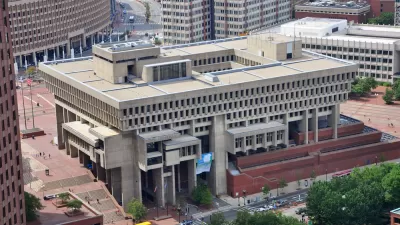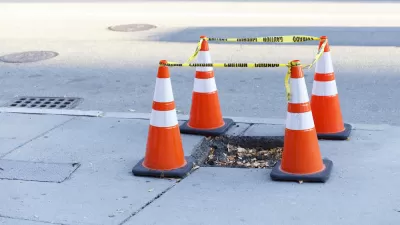The annual "City Fiscal Conditions" report by the National League of Cities delivers a warning signal about the state of the economy.

The National League of Cities (NLC) published its 2019 "City Fiscal Conditions" report yesterday. The key findings promoted on the NLC's website are less than optimistic:
- Almost two in three finance officers in large cities are predicting a recession as soon as 2020.
- Cities' revenue growth stalled in the 2018 fiscal year, but this year's continued drop indicates mounting pressures on city budgets
- The Midwest is bearing the brunt of declining conditions, the report found. Overall general fund revenues in midwestern cities dipped by 4.4% in fiscal year 2018
An article by Bill Lucia shares insights into the report's findings, including some more optimistic notes. While the pessimism about the potential of recession is coming from the largest cities, only 35-38 percent of respondents from cities with less than 100,000 residents predicted a looming recession, for instance.
Driving a lot of the conclusions and predictions reported in these findings is a softening and even, in some cases, declining revenue base for local governments.
Overall, for the cities NLC surveyed, the growth rate for general fund revenues softened to 0.59% in fiscal year 2018, from 1.25% in fiscal 2017. Expenditures grew at a rate of 1.8% among the surveyed cities in fiscal 2018, slightly lower than the 2017 rate of 2.1%.
The property tax revenue growth rate for surveyed cities was 1.8% in fiscal 2018, down from 2.6% in 2017. The income tax revenue growth rate slipped to 0.6% from 1.3%. Sales tax revenues grew by 1.9%, roughly in line with the growth rate for 2017, according to the report.
In Midwestern cities, general fund revenues declined sharply, at 4.4 percent, with declines in big cities like Chicago and Minneapolis driving the trend.
FULL STORY: Big City Finance Officials See Recession on the Horizon

Manufactured Crisis: Losing the Nation’s Largest Source of Unsubsidized Affordable Housing
Manufactured housing communities have long been an affordable housing option for millions of people living in the U.S., but that affordability is disappearing rapidly. How did we get here?

Americans May Be Stuck — But Why?
Americans are moving a lot less than they once did, and that is a problem. While Yoni Applebaum, in his highly-publicized article Stuck, gets the reasons badly wrong, it's still important to ask: why are we moving so much less than before?

Research Shows More Roads = More Driving
A national study shows, once again, that increasing road supply induces additional vehicle travel, particularly over the long run.

Judge Halts Enforcement of Anti-Homeless Laws in Grants Pass
The Oregon city will be barred from enforcing two ordinances that prosecute unhoused residents until it increases capacity and accessibility at designated camping sites.

Advancing Sustainability in Los Angeles County Schools
The Los Angeles County Office of Education’s Green Schools Symposium brings together educators, students, and experts to advance sustainability in schools through innovative design, climate resilience strategies, and collaborative learning.

Using Old Oil and Gas Wells for Green Energy Storage
Penn State researchers have found that repurposing abandoned oil and gas wells for geothermal-assisted compressed-air energy storage can boost efficiency, reduce environmental risks, and support clean energy and job transitions.
Urban Design for Planners 1: Software Tools
This six-course series explores essential urban design concepts using open source software and equips planners with the tools they need to participate fully in the urban design process.
Planning for Universal Design
Learn the tools for implementing Universal Design in planning regulations.
City of Moreno Valley
Institute for Housing and Urban Development Studies (IHS)
City of Grandview
Harvard GSD Executive Education
NYU Wagner Graduate School of Public Service
City of Cambridge, Maryland
Newport County Development Council: Connect Greater Newport




























